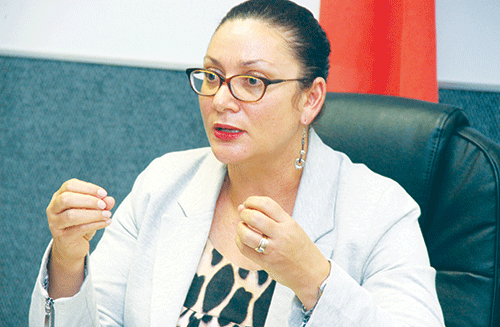The education ministry’s executive director Sanet Steenkamp has expressed optimism about the state of education in the country.
Sharing the same confidence, former minister of education Katrina Hanse-Himarwa said the journey towards achieving quality education is a lengthy one.
Both educators made these remarks in separate interviews with New Era on matters surrounding the previous academic year.
Steenkamp said just like trees take time to bear fruit, the education sector has made significant investments, and positive results will become evident gradually.
“Yes, we will not see the fruits immediately, but there have been targeted interventions,” she reasoned.
The focal point of the issue is the recent release of the 2023 national examination results for both the National Senior Secondary Certificate Ordinary Level (NSSCO) and the National Senior Secondary Certificate Advanced Subsidiary (NSSCAS) levels.
The results released on Wednesday show a slight improvement of 3,8% when compared to 2022.
Out of 40 682 pupils who sat for the examinations, 10 261 pupils may proceed to AS level, while 30 421 (75%) will see their high school journey end in grade 11.
Steenkamp said scrutinising the outcome of the 2023 academic year cannot go without acknowledging the holistic impact Covid-19 had on the 2022 academic year.
“The results of 2022 have been a true reflection of the impact of Covid-19. So, we must see that it had a holistic impact, and you can’t look at it separately. You have to look at the impact it had on our well-being, mental well-being, psycho-social well-being. We have to look at the fact that specifically from pre-grade up to AS level, learners were making shifts to attend school, which means that they literally did not have sufficient time to spend in the classroom in a free manner that allows one to use methodology to instil discipline while also ensuring that learning is taking place in a conducive environment at the right quality of time,” she elucidated.
She reiterated her optimism in the education system, saying, “We can just grow from strength to strength in the education sector with all our stakeholders”.
2023 academic year
Despite challenges and the decline of the pass rate in 2022, the executive director said some progress had been made in the previous year.
This includes regional visits and regional improvement strategies that all regions have executed.
“There have been school-based action plans specifically on the evaluation of teachers, setting targeted interventions from the head office in terms of examiners’ reports. There has been training on examiners’ reports, there has been professional development for teachers in chemistry and science subjects,” she continued.
Steenkamp confirmed that the ministry has invested not only in infrastructure, but also in resources into teaching and learning in the classroom, ensuring that the capacity of teachers in terms of specific subject knowledge is enhanced.
With all these targeted interventions, there should thus be gradual improvements.
“Even if it’s just gradually,” she noted.
Education is complex
Meanwhile, Hanse-Himarwa tackled the complexities of education, saying so much has to be done first before the country can achieve quality education.
The former educationist had spearheaded the new curriculum, which includes the AS level that was implemented in 2021 as part of the third basic education change, started in 2012.
In her words, there are many dynamics in education, and the complexities are ‘deep’.
She said education must not be considered in isolation without taking cognisance of various dynamics and influential factors in society, which include socio-economic conditions from which quality education is provided.
“Of course, we are still distant from providing quality education, but we are in the process” she noted.
She, however, thanked the current leadership and learners for improved results.
“That gives me hope, and we can multiply that as we are going,” she added.
Hanse-Himarwa then cautioned that improvements must be implemented swiftly as the number of children failing is concerning, necessitating urgent and decisive action.
Student leadership
Namibia National Students Organisation (Nanso) spokesperson Dorthea Nangolo expressed satisfaction with the observed rise in the pass/admission rates for both NSSCO and NSSCAS levels.
However, she emphasised Nanso’s commitment to doing more to ensure that every aspiring student has sufficient, fair and affordable access to higher education.
“To those who will be taking the next step in their education journeys, kudos and Godspeed. We are actively working to ensure that those who have not met the requirements for admission to NSSCAS or institutions of higher learning have viable and sustainable alternatives,” she added.
New Era also spoke to her deputy, Luciano Kambala, who said Nanso is yet to present its analysis of the results after inputs from members from all its structures.
The students’ organisation will have a meeting this weekend.
“Once we have input from all our regional structures, we will be able to provide a detailed analysis,” he observed.


